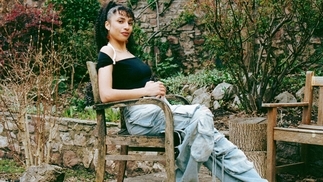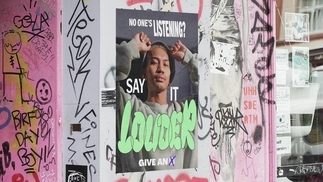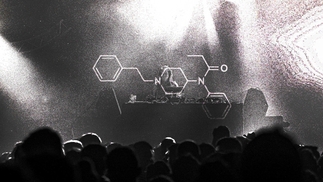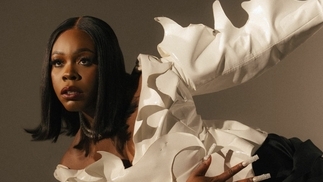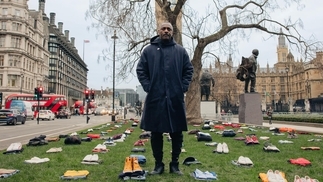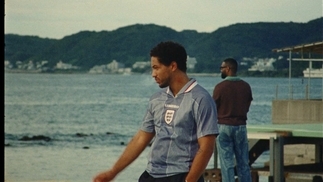ROÍSÍN MURPHY TALKS TRIALS, TRIBULATIONS AND 'HAIRLESS TOYS'
DJ Mag meets Róisín Murphy on the brink of her new LP, 'Hairless Toys'...
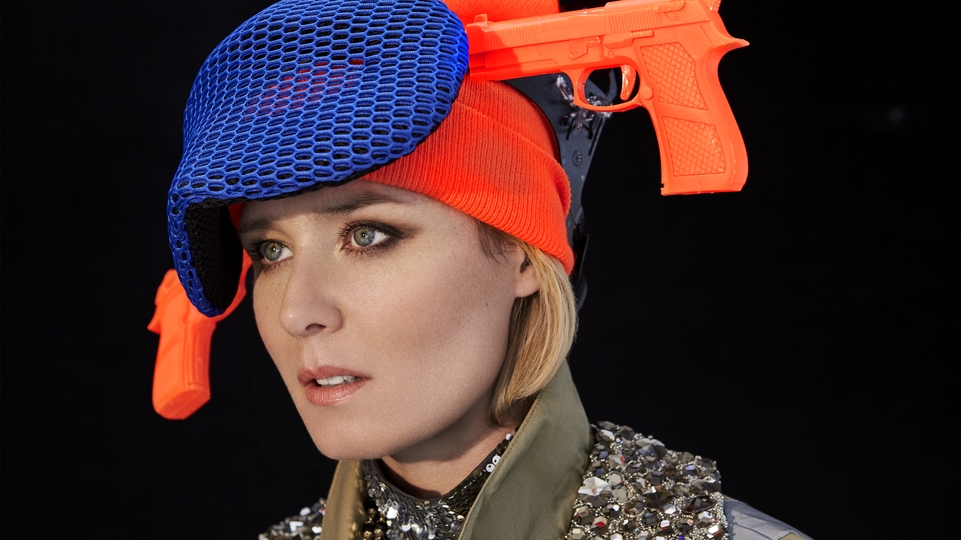
Róisín Murphy is the ultimate career woman. From teenage runaway to cult sensation, the mother of two has managed to truly have it all, thanks to a deadly combination of dry wit and raw talent. It’s this talent that might appear — from the outside — to have lain dormant for almost a decade, with the singer releasing what can be best described as “bits and bobs” over the last eight years, but nothing on the scale of her last long play record, ‘Overpowered’.
But all that is about to change. Fans of the singer have issued a collective fist pump at the prospect of Róisín Murphy’s return, which will come in the form of a new album ‘Hairless Toys’, set to drop on 11th May via independent label, Play It Again Sam. No matter the timeframe, it’s clear that Murphy has never been a write off, with critics, fans and a new unsuspecting music populace patiently waiting for her to resurface. The question is, then, just as much “why?” as it is “what?”, with DJ Mag curious as to why the singer has finally picked 2015 as the perfect year for a rebirth.
Murphy’s legacy could probably have been left to marinate even a little longer, still basking in the prolonged afterglow of ‘Overpowered’, her first solo record ‘Ruby Blue’ and — of course — her stint in electronic pop duo, Moloko. But when DJ Mag meets her, one quiet Friday in a West London pub, we get the sense that Róisín Murphy is restless. It’s this restlessness (coupled with a dollop of new found life experience) that has been the catalyst for her impending comeback. Undoubtedly the singer’s darkest and most introspective LP to date, ‘Hairless Toys’ might not be the record fans expect, but Róisín Murphy has always danced, gracefully yet firmly, to the beat of her own drum.
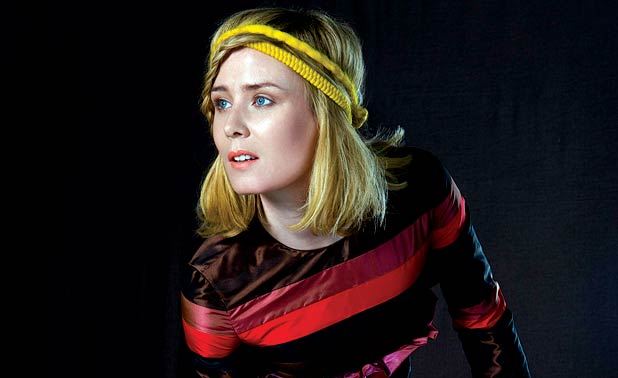
FOUNDATION
Róisín Murphy’s story starts out like any good rags-to-riches biopic. Moving from a small town in Ireland at age 13, the young Róisín was tossed headfirst into the hustle and bustle of grubby, industrial Manchester in the mid '80s. Like any Hollywood epic goes, she'd felt like an outsider in her hometown, deciding to hang out with others that didn’t fit the mould when she finally made it to the city. Here, it was music that she says saved her, or rather, breathed life into her very existence.
“I was definitely destined to become an outcast if I'd stayed in Ireland because I was already being bullied. I was flouncing around that small town in my aunt's 1960s wedding dress. I was a total fantasist from the beginning.”
"It was an outing to a Sonic Youth concert and a newfound friendship group (“mostly blokes who looked like they were in The Jesus and Mary Chain”) that really changed things for Murphy, helping her find the sense of identity, nay purpose, she'd been craving. “You know, it made me think, I'm into alternative music, I'm not going with the mainstream, and the pride that that brought me.
"Finding that identity and then going with it. The armour that created, and the power. The feeling that even if people don't understand you and they call you a weirdo, it makes you realise that that's actually their problem.”
It’s this steely independence and vivid self-realization that went on to guide Murphy through almost all of her endeavours. Left alone in Manchester at 16 when her mother moved back to Ireland, the singer had built a surrogate family amongst her peers, staying behind in her own flat watched over by friends and neighbours. She would eventually up stumps to Sheffield just shy of her twenties — where she’d meet influential figures DJ Parrot, Winston, Eddie Stevens, Warp boss Rob Mitchell and Moloko’s Mark Brydon — but still cites her early days in Manchester as some of her most formative.
“You become proud of yourself, you know, that I was a weirdo. I was bloody delighted that I was a weirdo. Basically, it was wonderful.”
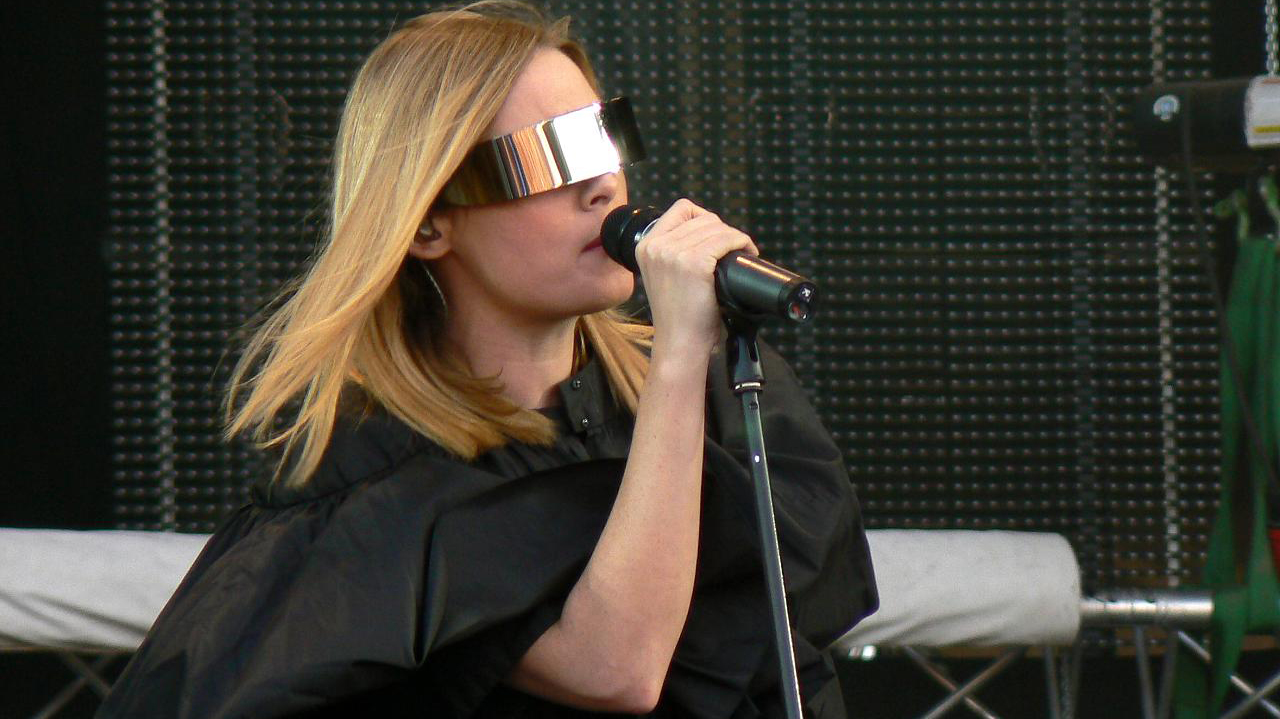
FANFARE
Next month will see Róisín Murphy back on stage. As much lauded for her performances as for the music itself, Murphy’s attitude to the stage seems to have always been the same, determined to let her shows develop “organically and with a strong sense of realness”. This kind of doggedness has served the singer well. No better advert for Róisín Murphy’s music is there than seeing it live — more than can be said for many of her female pop contemporaries. She’s set to tour the ‘Hairless Toys’ LP this month, kicking off at London’s Roundhouse in Camden on 16th May before heading to Germany, Spain and beyond.
Her performances on the Overpowered tour turned heads, as much for the singer’s boundary pushing ensembles (largely created by Belgian avant garde designer, Martin Margiela) as the disco-pop anthems pulsing from the speakers. So, can she tell us anything about what to expect from her return? Naturally, we’re curious.
“No,” she laughs, the kind of clipped, spiky chuckle that bounces its way around the room. “Not really.”
When we meet in the aforementioned pub one Friday morning, she’s barely even started to rehearse the show, though it’s obvious there’s a world of ideas quietly circulating within her cranium. It’s this type of sharp-as-a-tack intellect that makes Róisín Murphy such a force, warmly endearing as she is quietly intimidating.
“The hardest part has actually been choosing the songs,” she tells us, “obviously there’s a massive back catalogue.”
Said catalogue is thanks not only to the singer’s three LPs but also the sporadic house releases she’s lent her vocals to over her eight-year hiatus. Cuts on Hot Creations including ‘Invisions’ and ‘Alternate State’ picked up steam, plus there's a forthcoming release, ‘Jealousy’ on Crosstown Rebels, and last year’s Italian language EP, ‘Mi Senti’.
“There’s always going to be someone who says 'Oh, I wish she’d have done this song or I wish she’d done that song', but if I did them all we’d be there for three-and-a-half hours.”
Following the drought, three-and-a-half hours of Róisín Murphy live would probably sound like 10 Christmases at once for most fans — such is the hyperbolic anticipation that swirls around Murphy’s return.
However, a swan song, this is not. If anything it seems like Róisín is just casually picking up where she left off, surrounding herself with some of the team that helped her on ‘Overpowered’.
“Well, there’s five musicians and it’s a very organic combination of musicianship. Eddie (Stevens) is in the band, he’s always been my musical director and he produced this record with me.”
The pressure on Murphy must be immense, a fear under which many a hardened performer would quietly crumble. Róisín Murphy would appear (mostly) to be chomping at the bit, though she confesses candidly that she’s naturally a little nervous. “I think you should always leave the audience wanting more...” she murmurs, leaving little doubt that this show will do exactly that.
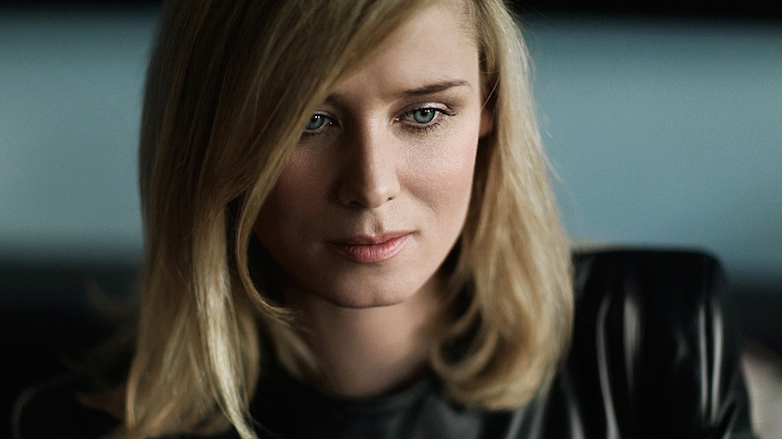
FIGHTER
“Anyway, I’m not having a go at music journalists,” she quips across the table at DJ Mag (after we momentarily break for a cup of mint tea), but it appears she hasn’t always liked us very much. And perhaps for good reason.
“For years, Moloko was aimed at the NME and Q Magazine — and I’ve got nothing against those things — but we really didn’t fit that well there. It was really...” she trails off for a moment, “We just weren’t understood. I always felt like we were fighting against something.”
And fight she did. Róisín Murphy has always been ballsy, standing up staunchly for what she wants, creatively and otherwise. Her union with producer/musician Mark Brydon — who'd previously worked with Boy George and Cabaret Voltaire among others — was an integral moment personally and professionally for the singer, kick-starting both a long-term romantic relationship and famed trip-hop-cum-pop duo, Moloko.
The story of their meeting is the stuff of legend, with the singer famously declaring, “Do you like my tight sweater? See how it fits my body” to Brydon at a party in '95.
“I think because I came into this saying 'Do you like my tight sweater?', I've always had that same attitude. The career I’ve had is thanks to that 'do what we like, see where it takes you' attitude, and I’ll protect that to the dying day. I’m paranoid if I don't, that it will all...” she pauses thoughtfully “destruct.
“There have been moments (like on 'Sing It Back') and things that have happened, the kind of situations that I’ve had to be ballsy in. And I wouldn't go back and change it. I don't regret doing that.”
For all the ballsy antidotes and lashings of fan adoration, Róisín Murphy is no diva. Nor do we get the impression she ever had been. If anything she’s a little rough edged and utterly humble, smiling through a shaggy bob as she chats to us in the pub’s dining room, as The Supremes' 'Greatest Hits' gently croon in the background. It’s when she speaks about her first solo record, ‘Ruby Blue’ (produced by Matthew Herbert), that she really shows the cracks; a deep seated disappointment and vulnerability about how the record was — at the time — received.
“I thought ‘Ruby Blue’ was a pop record, but when I delivered it, I was told it was the wrong record by the record company. A record company (Echo Records) that I had worked with for 10 years and given them their biggest hits. I signed to them when I was 20. It was a very disappointing moment in my career to be honest with you.”
Disappointment aside, Murphy freely admits it’s the men in her life that have been most influential — notably Mark Brydon of Moloko, producers Matthew Herbert and Eddie Stevens, and now-partner, Seb Brigante — though the singer learnt a tough lesson thanks to ‘Ruby Blue’s initial failure.
“I wasn’t with Mark (or Moloko) anymore and I didn’t have the back up of a bloke. You know, a Northern, gruff bloke sticking up for me. I felt like they (Echo Records) were almost bullying me. That was the moment that I realized that everything people say about the industry really is true, that it’s full of sharks and people are unreliable. I didn’t really believe all of that until then.”
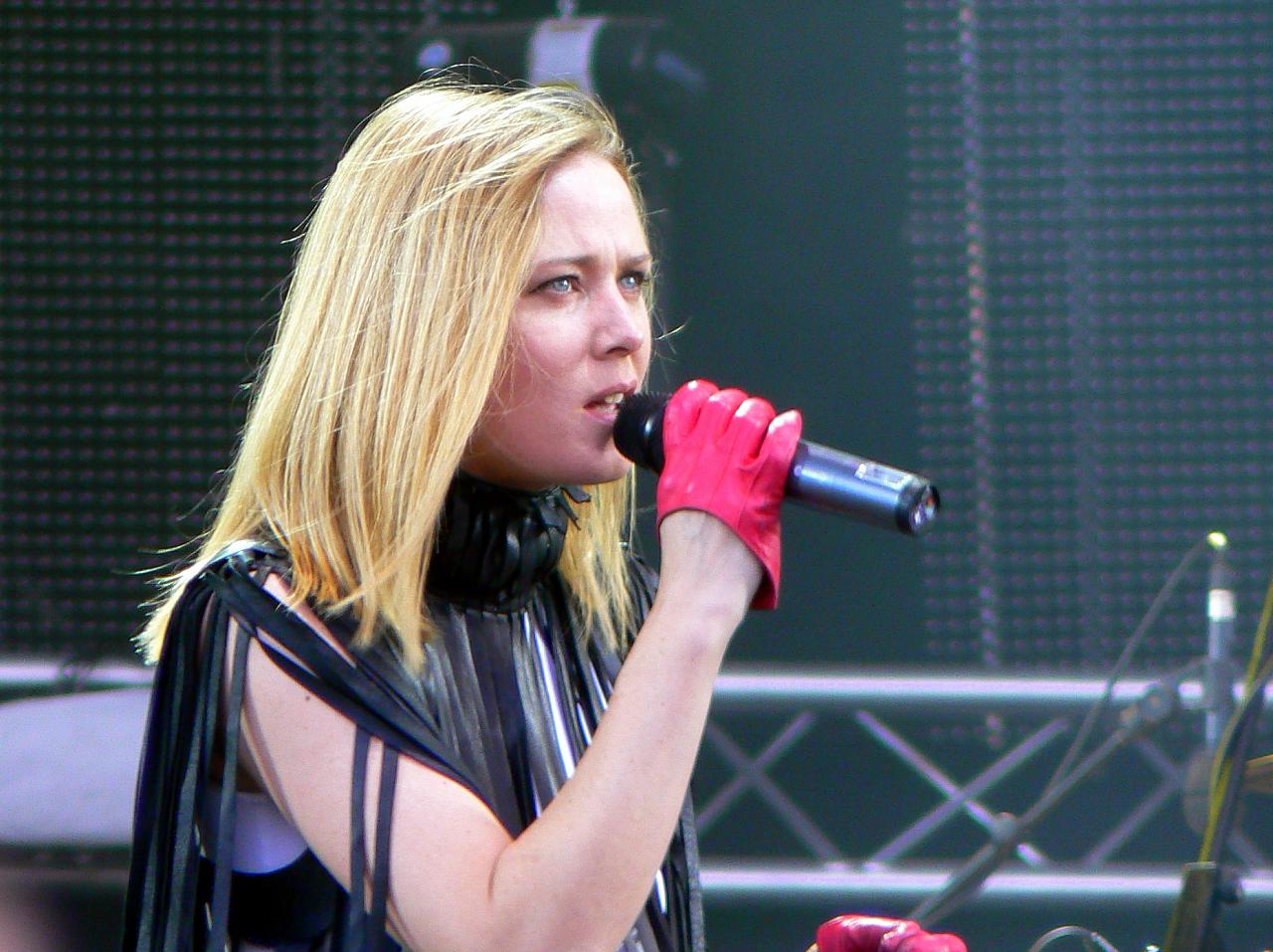
FUTURISM
Despite the singer’s highs and lows, Róisín Murphy has always been down with the kids. Something that must feel strange considering that she no longer is one. Instead, she’s had two of her own, the second with Seb Brigante, better known to dance fans as one half of Hot Creations signed duo, Luca C & Brigante. Being a mum hasn’t made her lose her sense of cool; the second you meet Róisín Murphy you realize she’d probably look good in a bin liner.
When she eventually decided it was time for 'Hairless Toys', following an eight-year break and two babies, the singer needed to get a few things in order. Since ‘Overpowered’, things had unraveled management-wise, and times had changed, making Róisín Murphy’s obvious lack of internet presence an immediate concern. Instead of hiring a social media mogul to thrust her into the digital age, Murphy decided, in typical fashion, to do it herself.
“My boyfriend, who did a computing degree, was like, 'Don't worry about it, I'll set it up for you' and that was it. So I started with Instagram and I just loved it, so I was doing like 25 posts a day,” she laughs, “whereas now it's maybe only one a day.
“It's a communication with the fans but it can be abstract, it can be the inside of a hotel room, a sort of 'Here I am right now, what I'm looking at now', or it can be a piece of art, something in your life, something off the internet. That's a very natural medium for me.”
The immediacy of social media made Murphy feel connected with fans in a way she'd never experienced with Moloko. Positive feedback from Facebook in particular spurred her on further, thanks to a desire to create dialogue around her music.
“I never looked at Facebook and there were already so many people on there when I eventually joined. And to get this immediate response of 'Oh you're back, we love you!' — It's quite nice, I won’t lie to you!”
Bizarrely, the internet had caught up with Róisín Murphy long before she had embraced it, with streaming the springboard for Murphy’s music — particularly her record, 'Ruby Blue' — to reach a new and rather unlikely demographic.
“'Ruby Blue' was meant to be the weirdest record ever made, but in some ways it’s become the most commercial. I started to watch videos on YouTube of American kids with flags on a football field dancing to tracks from 'Ruby Blue' and I’m like 'Er, excuse me?'”
“Oh, and watching ‘Rama Lama (Bang Bang)’ get used on So You Think You Can Dance USA. That exposed the album to a whole new audience. ’Rama Lama (Bang Bang)’ is like some kind of American dance troupe anthem,” she looks mildly perplexed but inherently pleased as she says it. “It’s all very odd, but very true.”
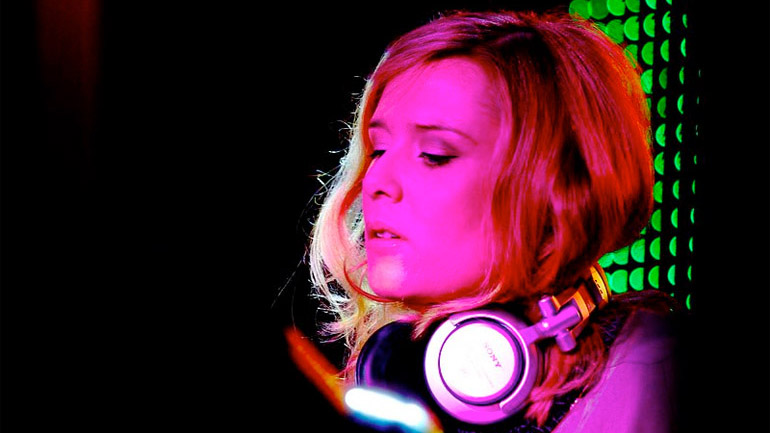
MOVING FORWARD
Now that Róisín Murphy is officially back, the question remains incredibly simple. Is her comeback record, ‘Hairless Toys’ any good? Unsurprisingly, the answer is a resounding yes, with the singer’s creativity seemingly unaffected by her time out of the sun.
There’s no doubt ‘Hairless Toys’ is different, in the same way ‘Overpowered’ was different to ‘Ruby Blue’, which was a subtle departure from her work with Moloko. It’s her knack to construct “can’t get it out of your head” grooves and glassy hooks that keeps the listener coming back, and remains the common thread that ties all of her work together.
Inspired by cult flick Paris Is Burning, ‘Hairless Toys’ aches with a newfound sense of sexual yearning and tension, fluttering and grinding its way through eight tracks of murky disco and gurgling house.
“I think it’s an unusual record, it’s a weird record. But I think what pulls it back from the brink of obscurity is that it has a lot of universal emotions to it and more, maybe, than other records I’ve made. I’ve lived eight years like everyone else lives their lives. Instead of that constant recording and touring schedule, that groundhog day sort of life. I think it becomes too narrow.”
“So, you think you’ll do another album?” DJ Mag pries, after Murphy tells us she wrote a whopping 35 tracks for ‘Hairless Toys’, of which only eight made the album.
“Yeah” she responds, “definitely”.
“Okay but not in another eight years right?”
“No,” she smiles a slightly wonky grin, “I promise”.
‘Hairless Toys’ is out 11th May on Play It Again Sam
-------
ROÍSÍN MURPHY ON 'SING IT BACK'
“I’d written ‘Sing It Back’ as a house record and with a house beat. And Mark (Brydon of Moloko) got really shaky about it because he felt like it didn’t really fit on the second album. The second album ('I Am Not A Doctor') wasn’t a success compared to the first one, and it was all very depressing at the end. We were just about to put the record to bed and it was at a time when loads of people were doing remixes.
“So the label said, 'Yeah, let’s get Todd Terry to do it, he’s just had a huge hit with Everything But The Girl’', and it was a perfectly good mix but it just didn’t sound like a hit to me. And Boris Dlugosch went to the German company off his own back and said 'Can I please have the parts? I want to have a go'.
“So we got it back and I put it on and I swear to God, I just saw myself on Top of the Pops. Just like that. And I was like 'It’s a hit!' So, I rang up the label and I said, 'This thing has got to be the A-side, it’s a hit', and they were like 'Are you crazy, Todd Terry has to be the A side!'.
“There was crying and stamping of the feet and even two meetings where I begged. So, it went out the first time with Todd on the A-side and it didn’t do that well. And soon it was Miami Music Conference — back when that was, you know, a thing — and if it was a big record in Miami it was going to be a hit.
Everyone was ringing back BBC Radio 1 saying ''Sing It Back’ (Boris Dlugosch Reprise Remix)' is the biggest record out here'. So I rung up the label and I said 'Well, should we go again?' and the rest is history.”
